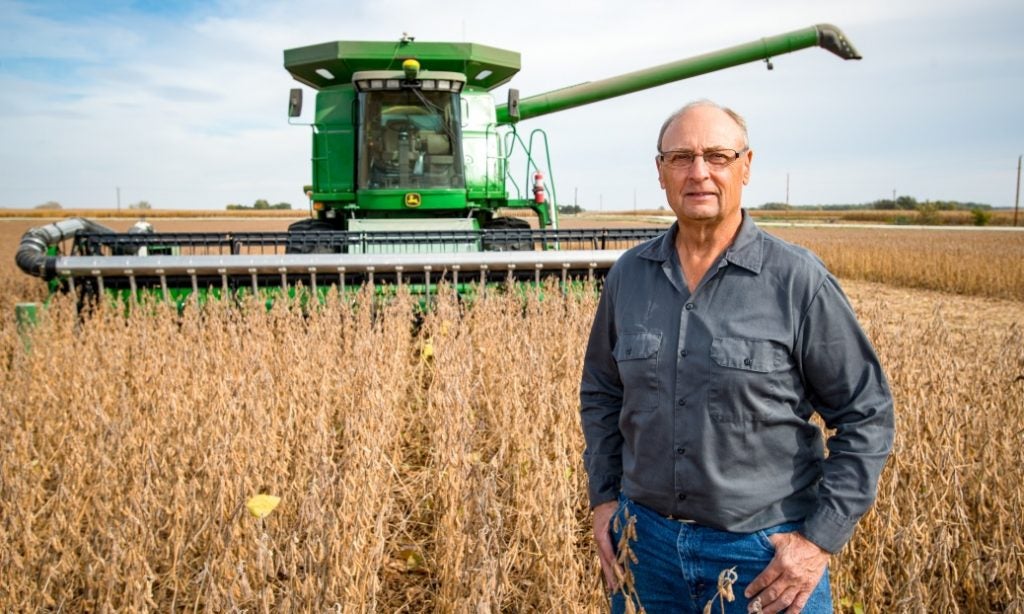Why recordkeeping is “one of the most essential pieces of farming today”
This blog is authored by Bethany Baratta, senior writer at Iowa Soybean Association. It originally posted on the Iowa Soybean Association Newsroom.
Devoting adequate time and attention to maintaining records that blend agronomic and financial data is key to farm business success, especially in tight or low margin environments.
“I think recordkeeping is one of those overlooked parts of farm businesses,” says Dave Walton, an Iowa farmer and Iowa Soybean Association (ISA) District 6 director. “It takes a little extra time to do it, but you learn so much more by taking that extra time. It helps you make really, really comfortable, solid decisions.”
Ultimately, evaluating every practice and every field through records management helps farmers make more informed decisions that can achieve better financial and environmental outcomes.
“I can only manage it if I can measure it”
Recordkeeping is a helpful way to show, for example, if a conservation practice on the farm, like reduced tillage or cover crops, pays off.
“Recordkeeping is one of the most difficult and most essential pieces of farming today.”
Walton uses a software package on his farm that integrates both agronomic and financial data. Investing in this system allows him to apply a cost to every pass that goes across the field, figuring in the price of diesel, labor costs, equipment depreciation and more.
“I can only manage it if I can measure it,” Walton says. “If I don’t know what it cost me to put in an acre of corn or the difference in yield where I had a cover crop and where I don’t, I can’t manage it effectively. This gives me data I can use to make those management decisions.”
Using agronomic and financial records, Walton found a cost savings to converting all his acres from conservation tillage to no-till. He has fine-tuned his nitrogen plan by taking a closer look at various forms, timing and rates that work best in his system.
More than a decade of financial and agronomic data affirms his decisions on the farm, not guesses or gut feelings.
“I can tell you from experience that what you think is happening and what’s actually happening are two different things,” Walton says. “I’ll trust the data over my gut all day long.” Better recordkeeping can help farmers achieve better financial and environmental outcomes. Here’s how. Share on X
Having information at farmers’ fingertips has many advantages
ISA District 9 director Pat Swanson has seen a multitude of benefits from better data and recordkeeping.
“We use GPS equipment to monitor our planting and harvesting. This helps us make decisions on conservation practices, fertilizer, cover crops, and to manage our livestock grazing,” Swanson says. “We do enterprise analysis of all our farms and through our livestock operation. We can see where we are breaking even and where we need to cut costs.”
Swanson, a crop insurance agent, says sufficient recordkeeping also helps ensure farmers don’t miss deadlines or potential financial assistance.
“During this time of additional government programs popping up (Market Facilitation Program, Coronavirus Food Assistance Program), having your records, yield information and inventories at your fingertips helps you respond and receive additional financial assistance in a timely fashion,” she says.
Having accurate records of load logs, bin measurements, yields and sales receipts helps crop insurance agents like Swanson calculate production for crop insurance.
Making more informed decisions on crop insurance
Because of his thorough recordkeeping, Iowa farmer Wayne Fredericks saw a crop insurance premium savings of $6.75 per acre on corn acres due to a lowering of his risk protection policy from 85% to 75%, switching to the Price Loss Coverage program and adding the Supplemental Coverage Option. This option is measured against the county-wide yield history versus his own, so it lowers his costs of coverage.
Fredericks’ recordkeeping system produces a 14-page farm financial year-end report. It includes accrual basis income and expenses, a balance sheet, listing of assets, liabilities, return on assets and more data that help him ultimately farm better and more sustainably.
Fredericks adopted strip-till and no-till practices as a result of what he discovered with good recordkeeping. “That (reduced tillage) was probably one of the single biggest dynamic changes in my whole farming career,” Fredericks says. “It dramatically changed labor, the investment in equipment, and my costs.”

An opportunity to identify and reward good stewards
Gus Barker sees a variety of recordkeeping strategies among his clients as the president and CEO of First Community Bank in Newell, Iowa. The bank serves four communities in northwest Iowa. The ag portfolio is 80% of the bank’s $100 million business.
“Recordkeeping is one of the most difficult and most essential pieces of farming today,” Barker says.
Recordkeeping systems have evolved from the potato chip cans full of receipts that Barker remembers his parents taking to their tax preparer once a year.
Today’s systems, like Walton’s, combine financial and agronomic data to show what’s working on the farm. But it also shows what’s not working. This creates the potential to offer more benefits to farmers who have more thorough records — like the cost savings that Fredericks is seeing in reduced crop insurance premiums.
Barker says having more data that provides a cost-benefit analysis of on-farm practices like no-till and cover crops could be used in the future to present a case for reduced interest rates on operating loans and increased funding for conservation practices and water quality efforts.
“If we have more data and we can encourage more farmers to help with these studies, I think that gives us the fuel to go and lobby for some of these things,” Barker says.
Better farming for a better future
Prioritizing and dedicating time to improving the farm business through recordkeeping is the dividing line between farmers who are succeeding and those who are struggling, says Jim Knuth, senior vice president of Farm Credit Services of America, the largest agricultural lender in the upper Midwest with a portfolio of 57,000 customers. Knuth heads the Farm Credit Services of America’s Iowa Retail Financial Services Division.
Knuth says successful recordkeepers aren’t limited to a certain size of acreage — he sees good recordkeepers and poor recordkeepers in all sizes of farms. However, he points out that the financial issues can compound quickly without good recordkeeping.
“Without good numbers, you can’t have trends and you can’t understand where you’ve been, where you are, and where you’re going,” Knuth says.
Contact Bethany Baratta at bbaratta@iasoybeans.com.












